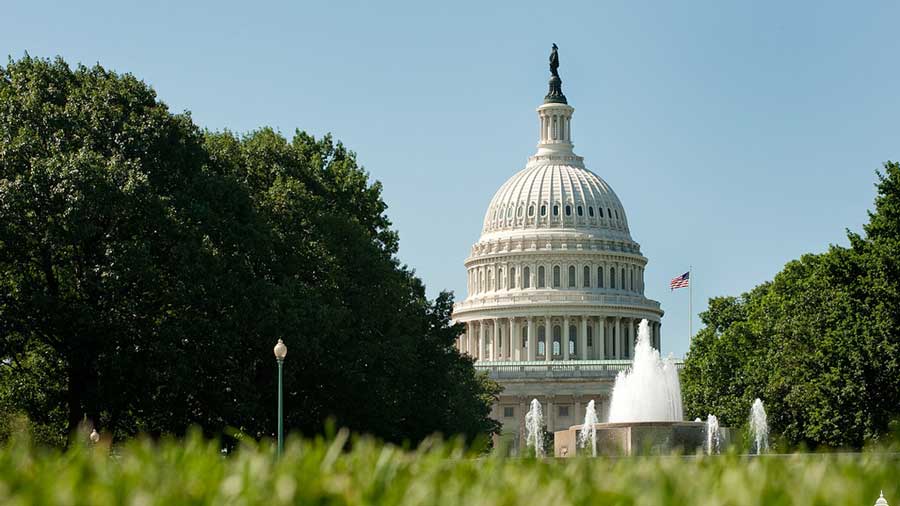Dems Prep Net Neutrality Bill

The smarter way to stay on top of broadcasting and cable industry. Sign up below
You are now subscribed
Your newsletter sign-up was successful
The Democrats this week will introduce their own version of legislation to restore net neutrality rules and keep the internet "open and free."
The FCC voted in December 2017 to eliminate the rules against blocking, throttling and paid prioritization.
Republicans have offered up three bills, but none of them restore the Title II (common carrier) definition of broadband internet access, which is the sina qua non for many Dems.
The three bills were introduced following a Feb. 7 net neutrality oversight hearing. None would classify internet access as a Title II common carrier telecommunications service, which many Dems still say is necessary.
The bills did not get any love from Dems, and net neutrality groups minced no words, saying they were at best woefully lacking and at worst fake efforts promoted by ISP lobbyist "shills."
Related: House GOP Leaders Urge Engagement on Net Neutrality Bills
In announcing a Wednesday (March 6) unveiling, House Energy & Commerce Committee Democrats did not say whether or not Title II was in the bill, but given the list of proposed attendees, which included Sens. Ed Markey (D-Mass.), Chuck Schumer (D-N.Y.), and House Speaker Nancy Pelosi (D-Calif.), its a pretty safe bet.
The smarter way to stay on top of broadcasting and cable industry. Sign up below
The bill is described as "reversing the disastrous repeal by Trump’s Federal Communications Commission (FCC) in late 2017 of the critical net neutrality protections."
Both Republicans and Democrats say Congress needs to clarify the government's authority over net neutrality. The Republican bills would restore the rules against blocking, throttling and anti-competitive paid prioritization, but would not reclassify ISPs under Title II and would not restore the FCC's "general conduct standard," which was a way to get at conduct that might not fall under those rules, including due to technology not yet in the market.
One of the big issues with imposing new rules is whether Democrats will sign off on them without a general conduct standard in the package. NCTA-The Internet & Television Association president Michael Powell, who testified at Wednesday's hearing, signaled NCTA would support legislation that reinstated the FCC's 2015 rules—against blocking, throttling and paid prioritization—but that does not include the general conduct standard, a spokesperson for the NCTA confirmed after the hearing.
Democrats have said the legislation that restores only those rules and not the ability to reach other conduct is too limiting.
ISPs see that undefined power to regulate conduct yet to materialize or anticipate as providing the same kind of uncertainty as the constant legal ping-pong game surrounding the FCC attempts to regulate or deregulate internet access without clear direction from Congress on what its authority is.
Currently, the FCC has deeded most net neutrality oversight to the Federal Trade Commission, which already has oversight over edge-providers, which the FCC does not.
Elsewhere a federal appeals court is considering a challenge to the FCC's reclassification of internet access as a Title I information service. If the case went against the FCC—it will likely be decided in the second quarter—the rules could return sooner, but lacking the Congressional clarification of legislation and likely headed to the Supreme Court.
Contributing editor John Eggerton has been an editor and/or writer on media regulation, legislation and policy for over four decades, including covering the FCC, FTC, Congress, the major media trade associations, and the federal courts. In addition to Multichannel News and Broadcasting + Cable, his work has appeared in Radio World, TV Technology, TV Fax, This Week in Consumer Electronics, Variety and the Encyclopedia Britannica.

